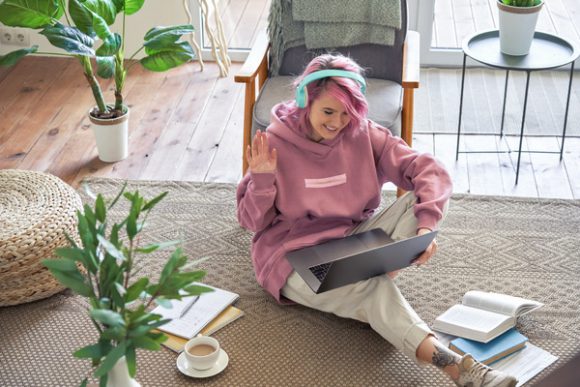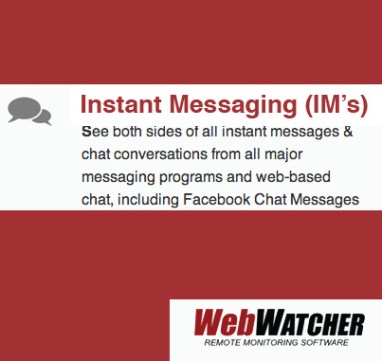The teenage years are a rough period for everyone, but those years can be especially hard for LGBT+ youth. Even if they have supportive families at home, they may not experience supportive environments from their schools, their peers, even their family members.
LGBT+ teens can also have difficulty finding information about their bodies, their emotions, and the things that they’re dealing with during a particularly turbulent time in their lives, because the majority of that information is geared toward teens who are straight and cis.
However, today’s LGBT+ youth have a resource that wasn’t available to many previous generations of LGBT+ youth: the internet. It can allow a teen who is (or feels like) the only LGBT+ teen in their whole town to connect with other teens like them, even if they live far away, and can also help them find teens like themselves closer to their own area.
The internet can be a lifeline to teens who feel “different.” It can provide limitless information about their bodies, feelings, and experiences that they may not be able to get from local sources. In some cases, they haven’t yet come out to their parents or their classmates. In others, their may not be aware of LGBT-specific information or may not know where to find it.
If you’re the parent of an LGBT+ teen, you may be want to guide your teen toward the information they need and opportunities to make healthy connections with others who understand them.
Sharing this list of online spaces for LGBT+ teens can help your child find a place where they can be themselves along with the sense of belonging that is critical to the teen years.
TrevorSpace
If you’re aware of the LGBT+ community at all, there’s a good chance that you’ve heard of the Trevor Project. It’s primarily known for its suicide prevention efforts for LGBT+ youth. That might scare some parents who hear of TrevorSpace and assume that it means their teen is considering suicide.
But TrevorSpace, while maintained by The Trevor Project, is a social networking site that is meant for LGBT+ teens and young adults and their friends. It’s meant to give similar functionality to popular social networks and messaging sites like Facebook, while giving LGBT+ teens a safe space to discuss whatever they want.
One of the great things about TrevorSpace is that it’s moderated by trained Trevor Project staff. This helps to keep the community safe and ensure that everyone is following the guidelines as they grow their social network within the community. As another safeguard, users must be approved before they can join the site.
TrevorSpace is open to teens from the age of 13 to young adults up to age 24.
The LGBT Forum on 7 Cups

According to the Human Rights Campaign, transgender teenagers and LGBQ+ teenagers are more likely to experience symptoms of depression than their peers who are cis or straight. That doesn’t mean that all LGBTQ+ teens will experience depression, but enough of them will experience it that depression-related forums are a good resource for LGBT+ teens.
Enter 7 Cups. 7 Cups is a support forum that’s specifically geared toward people suffering from depression, and it’s equipped with both a one-on-one listening service and a chat room where they can talk to other users. And while 7 Cups isn’t a specifically LGBT+ resource, they do have a specially designated space just for LGBT+ people as well as rooms just for teens.
This makes 7 Cups a great place for LGBT+ teens who are finding themselves and looking for a connection with others like them to safely share their thoughts and feelings, including those that might indicate depression or another mental health problem. Even LGBT+ teens who don’t have depression may benefit from learning the signs and being able to support others who might.
AVEN

AVEN is the Asexual Visibility and Education Network. Asexuals are included in the broader LGBTQ+ banner, but they’re often underserved, even in LGBTQ+ friendly spaces.
Asexuality is much less talked about than many other gender identities, so often the people who identify as asexual don’t even realize there are words to describe them or places where they can find others like them.
That’s why places like AVEN are so important. AVEN offers resources so that people can learn more about asexuality. The site also has forums where members can talk to each other about whatever happens to be on their minds.
The information contained on the site can help young people better understand their identities and talk about them with the people in their lives. And on the forums, they’ll be able to connect with others who have similar identities, who may be few and far between in offline life.
Tumblr
Tumblr may seem like just another social networking site, but it’s well-known for being an LGBT-friendly space. The LGBT-themed blogs hosted on the site tend to have good information, and LGBT publications and organizations like Autostraddle, Gay and Lesbian Alliance Against Defamation (GLAAD), The Advocate, and The Trevor Project all have strong presences on the site.
Tumblr also allows for users to ask questions anonymously, which can be an important way for young people who aren’t yet ready to come out or aren’t sure of their identity yet.
However, Tumblr also contains questionable content and few privacy settings. It may not be the best choice for young teens, especially if you have concerns about them seeing racy images or rough language.
On the other hand, it may be an appropriate choice for older teens who are ready for more autonomy online and who know how to take responsibility for their own online privacy and safety.
Teens need places that are safe for them to be themselves and to build support networks with others who share their experiences and concerns. This can be especially true for LGBT+ teens, who often feel they don’t fit in with their families or peers.
How WebWatcher Can Help
WebWatcher can help parents ensure that their teens are keeping themselves safe while seeking out support online. To find out more, get our free trial.





